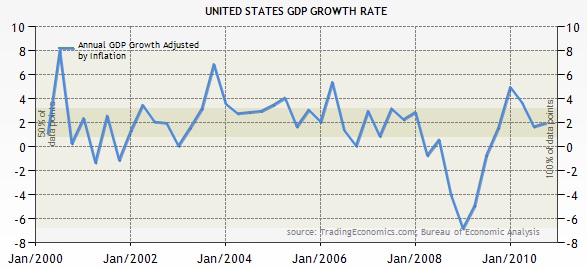By Sean Kerrigan
Sunday, October 30, 2010
I've always hated the phrase “facts are stubborn things” and this election year, its presence is felt everywhere. It's probably the worst phrase in the modern political discourse. Whenever a candidate or a pundit uses it, you can expect they are about to completely warp or distort those supposedly stubborn facts for their own agenda.
It's become such a cliche that when said aloud in public, it's been known to force eyeballs to involuntarily roll right out of their sockets. Even when it isn't used explicitly, you know when it's nearby. Some commentators will say it with the most sincere intent, but there is an unmistakable sense of smug superiority, with the implication they are the shepherds of reason and fact and their interpretations are beyond question.
More recently, the phrase has found a new home among Democrats where its use has flourished beyond what reason and sanity should allow. As we move toward what looks like a wave election (another overused phrase), desperate Dems have resorted to taking out their aggressions on the American voter, who's supposed ignorance of the facts is the primary cause of their discontent.
Washington Post financial writer Steven Pearlstein argued “most Americans don't really know what they think about the issues that so animate the political conversation in Washington, and what they think they know about them is often wrong.”
Steve Benen at Washington Monthly implies that voters would be apt to be more moderate in their voting habits (read: vote Democrat) if only they were privy to the stubborn facts.
“It's one thing for policymakers to adopt policies that make things better; it's something else for much of the public to simply ignore those policies and reject reality altogether.” Benen said. “It's worth realizing that uninformed voters make unwise decisions.”
As is often the case, the truth is somewhere in the middle. Most Americans may not consider political fencing to be worthwhile hobby like us, but their instincts are a lot more accurate than Benen gives them credit. Lets address his stubborn facts one at a time.
-
“Likely voters think their federal tax burden has gone up over the last couple of years, even though it hasn't.”
I'll grant that the
stimulus bill
did include about $280 billion dollars worth of “tax cuts,” but
many of them were in the form of tax credits, a system in which the
government will reimburse you for purchases and investments it thinks
you should make.
The problem with tax credits are
two fold. First, after taking advantage of the government's various
rebates, many Americans receive more back in tax credits than they
pay. This leaves the administration open to criticism for espousing
“income redistribution.” Even if you support the practice, it's
difficult to argue it isn't redistributing income to poorer
Americans.
More importantly, tax credits are highly questionable in their effectiveness. The controversial “Cash for Clunkers” program offered drivers a maximum rebate of $4,500 to trade in their old inefficient vehicles to buy a new and more energy efficient car. The program was popular and resulted in increased sales, but many of the new purchases were sales that would have happened later in the year anyway. According to Edmunds.com, the cost of each new sale that otherwise would not have happened was $24,000. By almost any estimation, that is a travesty. We might as well have purchased 125,000 new luxury cars for the poorest Americans. Who knows how ineffective the other tax credits are?
-
“The economy stopped shrinking and started growing more than a year ago, but 61% of respondents in this poll said the economy continued to shrink in 2010, even though it hasn't.”
This is probably the most disingenuous of his arguments. Benen is technically correct in the same way economist assert that we are no longer in a recession despite slow growth. Recessions are measured by a contraction in GDP, not just a slowdown which is what we are currently experiencing. There's no absolute rule to determine how much it needs to retract to be considered a recession, but most economist agree a recession is when GDP retracts for at least two straight quarters. Consider this graph.
Graph from TradingEconomics.com
While we are no
longer experiencing the
negative growth that epitomized much of 2008 and 2009, growth is
still lackluster, especially considering we spent over 1 trillion
dollar on fiscal stimulus which artificially inflates the GDP. According
to the congressional budget office, the GDP growth percentage
was
1.2 percent to 3.2 percent higher than it would have been without the
stimulus.
In late 2009, the economic golden boy of Keynesian fiscal policy Paul Krugman agreed:
“...the stimulus has already had its maximum impact on the growth of GDP, will hit its maximum impact on the level of GDP in the middle of next year, and then will begin to fade out. Second, the rise in manufacturing production is to a large extent an inventory bounce — and this, too, will fade out in the quarters ahead... The chances of a relapse into recession seem to be rising.”
Krugman's analysis proved to be absolutely correct. This is a very slow recovery and the last two quarters have seen a retraction that in a normal year we would consider a mild recession. The third quarter GDP growth for this year was 2 percent. What we used to call a mild recession like the one after 9-11, we now consider to be a recovery.
Furthermore, the non-government induced growth we are seeing is barely enough to keep up with the increase in the population, let alone signify an actual recovery.
Benen is probably correct, that even the more engaged among us probably don't know what the GDP growth for last quarter was, but Americans' instincts are telling them that the economic outlook is static and they're right. If you ask me, that's a pretty stubborn fact.






